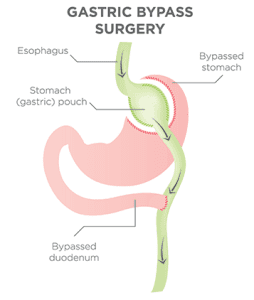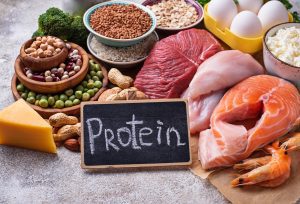Introduction
Gastric bypass surgery is a life-changing procedure that helps individuals achieve significant weight loss and improve their overall health. However, adjusting to a new way of eating after surgery is essential for long-term success. In this article, we’ll explore the post-gastric bypass diet, including what to eat, how to maintain proper nutrition, and tips for adapting to dietary changes for optimal weight loss and health.

How to eat after Gastric Bypass?
After gastric bypass surgery, the stomach is significantly reduced in size, leading to changes in digestion and nutrient absorption. As a result, patients must adopt a modified diet that prioritizes protein-rich foods, fruits, vegetables, and limited carbohydrates and fats. Portion control and mindful eating become crucial aspects of the post-surgery eating plan.

How much weight can I lose after Gastric Bypass?
Following gastric bypass surgery, patients typically experience rapid weight loss in the initial months. While this can be motivating, it’s essential to focus on sustainable weight loss and prioritize nutritional needs. Patients must work closely with a healthcare provider or dietitian to ensure they are meeting their daily protein, vitamin, and mineral requirements through their diet and supplementation.
What to eat after Gastric Bypass?
Maintaining proper nutrition after gastric bypass surgery is paramount to prevent deficiencies and support overall health. Patients should prioritize lean protein sources such as poultry, fish, tofu, and legumes to promote muscle preservation and satiety. Additionally, incorporating a variety of fruits, vegetables, whole grains, and healthy fats ensures a balanced diet rich in essential nutrients.
Due to changes in nutrient absorption post-surgery, patients are often required to take vitamin and mineral supplements for life. Common supplements include calcium, vitamin D, vitamin B12, iron, and folate. Regular monitoring of nutrient levels through blood tests and ongoing communication with healthcare providers help prevent deficiencies and optimize health outcomes.
Adapting to dietary changes after gastric bypass surgery can be challenging but rewarding. Patients should focus on small, frequent meals, chewing food thoroughly, and avoiding high-calorie, low-nutrient foods and beverages. Building a support network of healthcare professionals, support groups, and loved ones can provide valuable guidance and encouragement throughout the journey.

Conclusion
In conclusion, navigating post-gastric bypass eating requires dedication, patience, and a willingness to embrace dietary changes for long-term success. By prioritizing protein-rich foods, fruits, vegetables, and essential nutrients, patients can achieve sustainable weight loss and improve their overall health and well-being. With proper guidance from healthcare professionals and a commitment to mindful eating habits, individuals can thrive after gastric bypass surgery and enjoy the benefits of a healthier, more fulfilling life.
Disclaimer: The content on this blog is intended for general informational purposes only. It is not a substitute for professional medical advice, diagnosis, or treatment. Always consult qualified healthcare providers for personalized advice. Information regarding plastic surgery, dental treatment, hair transplant, and other medical procedures is educational and not a guarantee of results. We do not assume liability for actions taken based on blog content. Medical knowledge evolves; verify information and consult professionals. External links do not imply endorsement. By using this blog, you agree to these terms.





